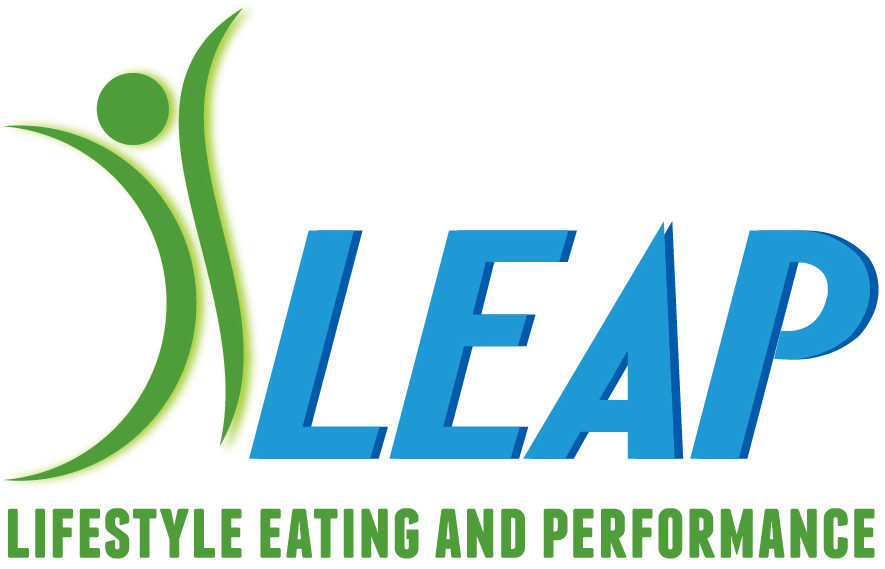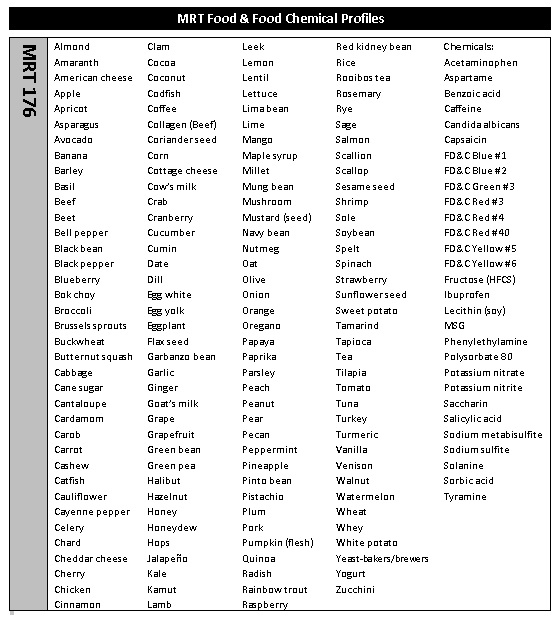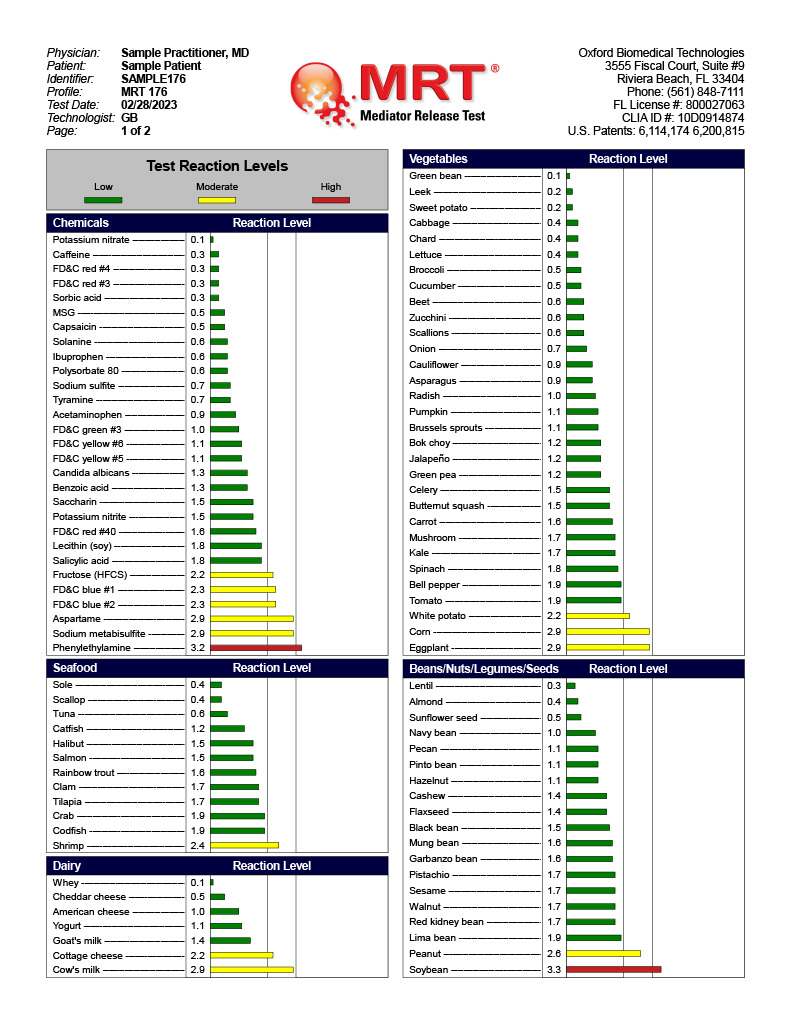Food Sensitivity Testing (MRT & LEAP)
When Mindful Eating Isn’t Enough
Have you tried everything but still feel sick?
Do you suffer from migraines?
Do you have chronic fatigue, joint pain, or muscle aches?
Do you experience constipation, bloating, or gas?
Are your sinuses always bothering you?
Do you have post-nasal drip?
Have you mapped out every public bathroom due to IBS-related diarrhea?
Are your medications simply masking your symptoms?
Have you been told it's all in your head?
Are you curious about food sensitivity testing, like MRT?

Are you ready to feel better?
If we haven’t met, I am Caitlin Russell, Registered Dietitian Nutritionist, Certified MRT LEAP Therapist, Holistic Cancer Coach, and founder of Russell Nutrition.
I help people just like you, who have suffered for years from various chronic conditions, find symptom relief simply by figuring out to which foods they are sensitive.

Caitlin Russell MS, RDN, CLT, RRCC
“How are food sensitivities linked to so many conditions?”
Inflammation is the root cause of many chronic diseases. There are several reasons why we develop inflammation but diet plays a big role in our body’s inflammatory response.
Research has shown that food and food additives like food coloring can be involved in a wide array of chronic health problems.
When we eat a food that causes inflammatory mediators to be released from our cells, this can lead to many negative symptoms such as irritable bowel syndrome (IBS), migraines, and fibromyalgia. Mediators include histamines, cytokines, leukotrienes, and prostaglandins.
Mediators that get released are the key event that leads to every negative effect that you suffer. These mediators create inflammation and leave you feeling AWFUL!

“How will MRT food sensitivity testing help me get better?”
When your immune system reacts to something you eat, symptoms may be delayed for up to 72 – 96 hours. You may eat something that you think is fine because you don’t notice an immediate reaction. However, reacting to something on Thursday that you ate on Monday will make it hard to pinpoint the problematic food.
You can react to “healthy foods” like rice, salmon, apples, turmeric, or cinnamon!
Without food sensitivity testing, it’s like trying to play pin-the-tail-on-the-donkey while blindfolded. It will take a long time to figure out what actually causes your symptoms.
Testing takes the blindfold off and gives you personalized information that can greatly reduce or even eliminate your chronic symptoms.
MRT® by Oxford Biomedical Technologies
The Future of Food Sensitivity Testing
This short animation shows how MRT food sensitivity testing works.
Click the arrow below for the MRT animation
“But my allergy test came back negative!”
Allergies and sensitivities are different. Most conditions like IBS, migraines, and fibromyalgia are not caused by an allergic reaction. It takes a different type of test, not an allergy test, to determine food sensitivities.
Allergy testing measures type I, IgE-mediated immune response. Food sensitivity testing measures type III and IV, non-IgE-mediated response.
While it’s important to know about any life-threatening IgE allergies you may have, it’s also important to know what’s causing sub-clinical inflammation that leads to water retention, fatigue, insomnia, arthritis, diarrhea, and so much more.
Inflammation = Chronic Conditions
“I’ve had other testing (IgG, RAST, skin-prick, etc.) and it didn’t help me.”
The testing that I do is the patented Mediator Release Test (MRT®). It is more accurate than other tests because MRT measures ALL the mediators that could be released due to an over-active immune response to a food or food chemical.
Other tests only look for antibodies and not the mediators that do the actual damage to your body and cause the inflammation. You may have a delayed, hypersensitivity reaction to a food and other tests won’t measure that either.
The best part is that MRT® testing not only tells you which foods you are most reactive to, it also tells you your BEST foods. These foods will form the basis of your personalized eating plan. With MRT®, you get information that you don’t get with other tests.
With my expertise and guidance, I’ll customize your food sensitivity testing results to ensure the best outcomes in the shortest amount of time.

How does MRT Food Sensitivity Testing Work?
The LEAP ImmunoCalm Dietary Plan
Your Path to Healing
The Lifestyle Eating and Performance (LEAP) therapy plan by Oxford Biomedical Technologies is customized to your MRT results.
You’ll receive a personalized protocol that combines your test results with my skills as a LEAP therapist so that you have a specific, anti-inflammatory diet designed to lower inflammation and reduce your symptoms.
The MRT test measures your immune reaction to 176 foods and food chemicals. Based on your test results, you’ll know which foods are safest for you to eat – ones that don’t produce inflammation.

176 foods and food chemicals tested using the MRT patented food sensitivity test
“How quickly will I see results?”
Most clients experience significant improvement in their symptoms in the first 10 days on the program. Symptoms then continue to improve for the next 4 – 6 weeks.
Many clients experience complete symptom improvement but your response will vary depending on:
How closely you follow your LEAP program. Following the protocol we develop for you will help you achieve the best results.
How long you’ve had your symptoms and condition(s). Damage due to inadequate nutrition, harsh medications, or chronic inflammation may take longer to reverse in some cases.
The degree to which food sensitivity plays a role in your condition. Other factors such as vitamin D status, B12 deficiency, and certain bacteria can contribute to symptoms as well.
“What will the test results look like?”
Below is an example (1st page is shown):

Your LEAP Report
You will receive a 65+ page report that contains many tips on getting started, how to follow the LEAP program, and forms for tracking your symptoms.
We’ll cover all of this in the initial consultation after your MRT test is done.
Accessible no matter where you are located in the U.S. There are restrictions if you live in NY state. We can discuss options during a free pre-qualification session — book using the form below.
All consultations with me (pre-qualification, initial, and follow-ups) are conducted via phone so you don’t have to worry about traffic or finding a parking space.
You can even have your consultations in your pajamas!
Do you have questions?
Here’s what to do next:
Sign up below for a brief, pre-qualification call to determine if you’re a good candidate for MRT testing and LEAP.
Caitlin can answer any and all questions you have about food sensitivity testing.
Sign up to see if you’re a good candidate:
Step 1
Below, simply click if you’d like to chat by phone or video.
Step 2
Then select and day and time that works for your schedule and click “Next.” Enter your name, email, and phone number and click “Next.” You may need to scroll up or down.
Step 3
Answer a few questions and click “Next.” You may need to scroll up or down. All information is kept strictly confidential. Click “Confirm & Book.” You may need to scroll up or down.
Step 4
You should see “Request Sent!” You will receive an email confirmation with details for your pre-qualification session. I will call you (or start the video session, if you chose that option) on the day and time you requested.
If you’re a good candidate:
- You will get your blood drawn using the MRT test kit that is sent to you.
- Blood gets shipped overnight to Oxford Biomedical Laboratories using a prepaid FedEx envelope that comes with the kit.
- Receive your personalized results a few days later.
- Schedule the initial phone consultation with Caitlin to go over your results and create a phase 1 eating plan that is 100% customized to you. This will all be explained in a message sent to you.
- Phase 1 lasts 10 days or potentially up to two weeks.
- Schedule follow-up phone consultations with Caitlin to discuss changes to your eating plan as you progress through your personalized protocol.
- Phases 2-6 slowly incorporate more foods and we create a healthy eating plan that works best for your lifestyle.
A Note on Insurance
Upon request, we can send you a “superbill” for you to submit to your insurance provider for possible reimbursement. Reimbursement depends on your insurance company and your plan. We are not part of any insurance network.
What’s Included with MRT Food Sensitivity Testing
Once you pay for MRT food sensitivity testing and the LEAP package, you’ll receive:
- Personalized MRT Food Sensitivity Test Results
- LEAP ImmunoCalm Dietary Management Program
- Detailed, bound report including shopping tips, a restaurant guide, diet tips and suggestions, and other food sensitivity resources
- Initial phone consultation with Caitlin to plan your personalized menu, taking your preferences into consideration
- Food reintroduction schedule, personalized based on your results
- Wallet-size MRT test results card, so you always have your results with you
- Food idea lists with cooking tips and recipes
- Menu planner guides for breakfast, lunch, dinner, and snacks
- Follow-up phone consultations with Caitlin to answer any questions you have about your maintenance plan
If food sensitivities are causing your illness and you don’t properly address them, you could easily end up suffering for many years, spending thousands of dollars for treatments that will never work the way you want.
Click here to learn even more about food sensitivity tests.

It’s time to stop procrastinating and put your health first!
LEAP has helped thousands of patients across the country turn years of suffering into a bright, happy, healthy future, free of the symptoms that once seemed an inescapable part of life.
Are you ready to discover what foods may be contributing to your unwanted health challenges?
Scroll above to sign up and see if you’re a good candidate.
new york residents
In New York, you may be aware there are restrictions with self testing. Please make an appointment with Caitlin to discuss your options. Look above “Sign Up to See If You’re A Good Candidate.”
Ready to sign up for MRT Food Sensitivity Testing?
If you’ve spoken with Caitlin in a complimentary, pre-qualification session (see above) and you’re ready to get started with food sensitivity testing, here’s what to do.
Step 1
Complete the information below and submit payment.
Step 2
You will receive a medical history form to complete online.
Step 3
Caitlin will be in touch with you to discuss scheduling your first session.
Food Sensitivity Test Payment Form
Oxford Biomedical Technologies ‒ Science Publications
Peer-Reviewed Manuscripts
- Zarini GG, McLean MA, Delgado SI. Is Personalized Dietary Therapy Effective for Individuals With Irritable Bowel Syndrome? Am J Lifestyle Med. 2022 Jul 6;17(2):317-325. doi: 10.1177/15598276221112309. PMID: 36896039; PMCID: PMC9989498. https://pubmed.ncbi.nlm.nih.gov/36896039/
- Zarini GG, Masters J, McLean MA, Strobel CT. Clinical and Anthropometric Improvements with a Tailored Dietary Approach in Pediatric Crohn’s Disease. Altern Ther Health Med. 2021 Mar 13:AT6717. https://pubmed.ncbi.nlm.nih.gov/33711815/
- Adamczak, DM. The Clinical Use of Mediator Release Test in Food Sensitivities. Journal of Food Science and Engineering, 1 (2018) 61-63 doi: 10.17265/2159-5828/2018.01.007. http://www.davidpublisher.com/Public/uploads/Contribute/5aa87a8e491ec.pdf
- Pasula MJ, Nowak J. Particle size measurement in suspensions: Part 1–A laboratory method for exploring food allergies and sensitivities in illness. Am Clin Lab. 1999 May;18(4):16-8. https://pubmed.ncbi.nlm.nih.gov/10539096/
- Pasula MJ. Particle size measurement in suspensions. Part 2: An in vitro procedure for screening adverse reactions to foods and chemicals. Am Clin Lab. 1999 Oct;18(9):14-5. https://pubmed.ncbi.nlm.nih.gov/10623324/
- Kaczmarski M, Pasula M, Sawicka E, Werpachowska I. MRT test – New generation of tests for food hypersensitivity in children and adults. Przeglad Pediatryczny. 1997 (SUPLEMENT 1):61-65.
Published Abstracts
- McLean M, Zarini G, Delgado S, Lee L, Lee C, Ondreyka J, Patenaude J. P08-012-23 Evaluation of the Lifestyle Eating and Performance (LEAP) Program To Manage Symptoms and Quality of Life for Irritable Bowel Syndrome (IBS). Current Developments in Nutrition, Volume 7, 101147. Published in issue: July 2023. https://doi.org/10.1016/j.cdnut.2023.101147
- Zarini G, McLean M. Effectiveness of the Lifestyle Eating and Performance (LEAP) program for Irritable Bowel Syndrome (IBS). Am J Lifestyle Med. 2023; 17 (Suppl 1). https://doi.org/10.1177/15598276221128370
- Zarini G, McLean M. S572. A Pilot Study for Precision Nutrition in Irritable Bowel Syndrome: In-Vitro Stimulation of Pro-and Anti-inflammatory Cytokine Release. The American Journal of Gastroenterology: October 2022 – Volume 117 – Issue 10S – p e406. https://journals.lww.com/ajg/Fulltext/2022/10002/S572_A_Pilot_Study_for_Precision_Nutrition_in.572.aspx.
- McLean M, Zarini GG, Linke S. Personalized Dietary Intervention for Women with Depression and Anxiety. Journal of the Academy of Nutrition and Dietetics. Vol. 122 Issue 9 Supplement A23. Published in issue: September 2022. https://www.jandonline.org/article/S2212-2672(22)00457-9/fulltext
- Zarini G, McLean M. Study Protocol: Effectiveness of the Lifestyle Eating and Performance (LEAP) Program for the Treatment of Irritable Bowel Syndrome (IBS). Current Developments in Nutrition, Volume 6, Issue Supplement_1, June 2022, Page 1162, https://doi.org/10.1093/cdn/nzac072.034
- Linke S, Zarini G, McLean M. Personalized Dietary Approach for Rhinitis and Sinusitis. Journal of the Academy of Nutrition and Dietetics, Volume 121, Issue 9, A28. Published in issue: September 2021. https://jandonline.org/action/doSearch?text1=Personalized+Dietary+Approach+for+Rhinitis+and+Sinusitis&field1=AllField
- Linke S, Zarini G, McLean M, Hogan J, Hogan P, Patenaude J. Tailored Dietary Approach for Individuals with Migraine. Current Developments in Nutrition, Volume 5, Issue Supplement_2, June 2021, Page 849, https://doi.org/10.1093/cdn/nzab047_012
- Patenaude J, Zarini G, McLean M, Linke S. Effectiveness of a Tailored Dietary Program in Subjects with Fibromyalgia. Current Developments in Nutrition, Volume 5, Issue Supplement_2, June 2021, Page 856, https://doi.org/10.1093/cdn/nzab047_019
- Braunstein N, Hogan M, Diaz Escamilla R. The Lifestyle Eating and Performance (LEAP) Program for Improving Quality of Life in Women With PCOS: A Pilot Study of Dietitian-Directed Therapy. Current Developments in Nutrition, Volume 5, Issue Supplement_2, June 2021, Page 1123, https://doi.org/10.1093/cdn/nzab061_007
- Patenaude J & Bright D. Clinical improvement of IBS, migraine, fibromyalgia and arthritis using elimination diets based on mediator release blood testing. Journal of the American Dietetic Association, Volume 109, Issue 9, Supplement, 2009, Page A32, ISSN 0002-8223. http://www.sciencedirect.com/science/article/pii/S0002822309008645
- Williams F. Use of the LEAP mediator release test to identify non-IgE mediated immunologic food reactions that trigger diarrhea predominant IBS symptoms results in marked improvement of symptoms through use of an elimination diet. American Journal of Gastroenterology: October 2004 – Volume 99 – Issue – P S277-S278. https://journals.lww.com/ajg/fulltext/2004/10001/use_of_the_leap_mediator_release_test_to_identify.847.aspx
Book Chapter
- Susan Linke. Chapter 23, page 405: Irritable Bowel Syndrome: The other Inflammatory Disease. AAPI’S Nutrition Guide to Optimal Health Using Principles of Functional Medicine & Nutritional Genomics Part III – 2017. ISBN: 978-1-5323-4393-3. https://www.aapiusa.org/wp-content/uploads/2020/04/Optimal-Health-Using-Principles-of-Functional-Medicine-and-Nutritional-Genomics-Part-3.pdf
Magazine Publications
- Patenaude J. Behavioral Nutrition Health Roundtable. Obesity in the age of weight neutrality: How are registered dietitian nutritionists responding to the challenge? Academy of Nutrition and Dietetics. BH Newsletter, Spring 2020, Volume 37 No. 1, Page 5. https://www.eatrightstore.org/dpg-and-mig-products/bhn/bhnewsletter-spring-2020-obesity-in-the-age-of-weight-neutrality-how-are-registered-dietitian-nutrit
- Joy Manning. I Wondered If How I Felt Had Anything to Do with Food. Epicurious Magazine. November 11, https://www.epicurious.com/expert-advice/crohns-disease-how-i-felt-had-to-do-with-food-article
- Lindsey Getz. Today’s Dietitian Fifth Annual Showcase of 10 Incredible RDs Who Are Making a Difference. Today’s Dietitian, March 2014 Issue, Vol. 16 No. 3 P. 24 http://viewer.zmags.com/publication/b89b9abd#/b89b9abd/1
- Pasula M. The patented mediator release test (MRT): a comprehensive blood test for inflammation caused by food and food-chemical sensitivities. Townsend Letter – January 2014. https://www.townsendletter.com/Jan2014/Jan2014.html
- Aglaée Jacob. Elimination Diet Protocols. Today’s Dietitian, July 2013 Issue, Vol. 15 No. 7 P. 10. https://www.todaysdietitian.com/newarchives/070113p10.shtml
- Karen Appold. Migraine Headaches — Here’s How to Identify Food Triggers and Reduce Debilitating Symptoms. Today’s Dietitian. November 2012 Issue, Vol. 14 No. 11 P. 14. https://www.todaysdietitian.com/newarchives/111412p14.shtml
- Patenaude J. Inflammation and food sensitivities — successful treatment begins with patient-centered care. Today’s Dietitian, November 2011 Issue, Vol. 13 No. 11 P. 18. https://www.todaysdietitian.com/newarchives/110211p18.shtml
- Maura Keller. Food Intolerances vs. Food Allergies. Today’s Dietitian. October 2011 Issue, Vol. 13 No. 10 P. https://www.todaysdietitian.com/newarchives/100111p52.shtml
- Maura Keller M. Get Certified — Provide a Valuable Service by Adding Allergy Testing to Your Practice. Today’s Dietitian, August 2010 Issue, Vol. 12 No. 8 P. 18. https://www.todaysdietitian.com/newarchives/072710p18.shtml
- Susan Linke. Food Sensitivities: The Hidden Cause of Your Health Problem? 2009. CeliacCentral.org. https://www.beyondceliac.org/research-news/food-sensitivities-the-hidden-cause-of-your-health-problem/
- Alternative approach to IBS and migraine is winning over providers. Dis Manag Advis. 2004;10(1):6-1. https://pubmed.ncbi.nlm.nih.gov/15007999/
Poster Presentations/Conferences
- Ceresnie M, Ondreyka J, Ezekwe N, Zarini G, McLean M, Hamzavi IH. Bridging the gap between personalized diet and dermatology in clinical trials: a prospective pilot study in patients with hidradenitis suppurativa. Integrative Dermatology Symposium, 2022. https://integrativedermatologysymposium.com/2022-poster-presentations/
- Ceresnie M, Ondreyka J, Ezekwe N, Zarini G, McLean M, Hamzavi IH. A prospective pilot study on the clinical outcomes of the LEAP program in HS patients. American Medical Association (AMA) Research Challenge, 2022.
- Ceresnie M, Ondreyka J, Ezekwe N, Zarini G, McLean M, Hamzavi IH. Hidradenitis suppurativa and the Lifestyle Eating and Performance program: A prospective pilot study. Symposium on Hidradenitis Suppurativa Advances (SHSA), 2022.
- Zarini GG, McLean MA, Ondreyka J. Tailored Dietary Approach for Inflammatory Skin Disorders. FASEB Conference: The Nutrition, Immunity, and Inflammation Conference: From Model Systems to Human Trials – VIRTUAL, July 2021.
- Linke S, Patenaude J, Zarini GG, McLean MA. Tailored Dietary Approach to Manage Irritable Bowel Syndrome. Lifestyle Medicine Conference. Virtual, October 2020.
- Bethel LJ. Self-assessment of frequency and severity of symptoms with chronic inflammatory conditions following a patient-specific elimination diet and food reintroduction plan. Florida Dietetic Association Annual Meeting. Orlando, FL, July 2010.
Webinars
- Michael A. McLean. The Mediator Release Test (MRT): An Advanced and Innovative Diagnostic Tool Used to Unmask the Foods that Contribute to your Diet-Induced Inflammation. Functional Diagnostic Nutrition. April 2, 2022. https://www.functionaldiagnosticnutrition.com/hsu-lecture-series-watch-michael-a-mclean-ph-d/
- Michael A. McLean. DRESS for Health Success: Dr. Michael McLean of Oxford Biomedical Labs on the Quality of the MRT Food Sensitivity Test. Functional Diagnostic Nutrition. August 12, 2021. https://www.fdnconnect.com/dress-for-health-success-dr-michael-mclean-of-oxford-biomedical-labs-on-the-quality-of-the-mrt-food-sensitivity-test/
- Jan Patenaude. Taking the Guesswork Out of Testing for Food Sensitivities. Webinar: Transformational Enzyme Corp. April 21, 2021. https://register.gotowebinar.com/register/5319517933097797134
Radio & Podcast Interviews
- Susan Linke. Food Sensitivities. Healthy by Nature, June 12, 2021. https://podcasts.apple.com/us/podcast/june-12th-2021-guest-susan-linke-mba-ms-rd-ld-cltjack/id1144237072?i=1000525260686
- Susan Linke. The Complete Guide to Food Sensitivity Testing: FUELED | wellness + nutrition with Molly Kimball, October 10, 2020. https://www.spreaker.com/user/11744532/fueled-final-edit-food-sensitive
- Susan Linke. The Whole Scoop Radio Show. Naturally Nutrition Inc, A Holistic Approach. Episode 4. “Reversing Disease”; Episode 5: “Leaky Gut: No Need to Call a Plumber, Learn How to Fix Yourself”; Episode 14: “Inflammation and Chronic Illness: What’s Food Got to Do with it?”; Episode 64: Inflammation: “What you really need to know”; Episode 77: “Eating out – Do we have a choice?” August 21, 2019. http://www.naturallynutritioninc.com/the-whole-scoop-radio-show-archives/
- Susan Linke. Allergies–how to help prevent them and reduce their impact. Healthy by Nature radio, April 8, https://hbnshow.com/archives/april-8-2017/
- Jan Patenaude. The Food Sommelier Podcast – LEAP Podcast July 22, 2016. https://blubrry.com/food_sommelier/15392155/episode-039-is-your-food-making-you-sick-w-jan-patenaude/
- Susan Linke. Leaky Gut, Your Microbiome, and Food Sensitivities. Namastenutritionist.com, May 25, 2016. http://namastenutritionist.com/leaky-gut-your-microbiome-food-sensitivities/
- Susan Linke. Food sensitivities. Healthy by Nature radio, May 21, 2016. https://hbnshow.com/archives/may-21st-2016/
- Jan Patenaude. Identifying Your Migraine Triggers. Real Food Radio. May 17, 2016. https://bostonfunctionalnutrition.com/real-food-radio-episode-011-identifying-your-migraine-triggers/
- Jan Patenaude. Namaste Nutritionist- Migraines, Nutrition & Food Sensitivities. December 17, 2015. http://namastenutritionist.com/migraines-nutrients-food-sensitivities/
- Susan Linke. Fun with food. Healthy by Nature radio, April 16, 2011. https://hbnshow.com/archives/april-16th-2011/
Publications in Progress/ Preparation
- Zarini GG, McLean MA, Delgado SI, Lee LR, Ondreyka J, Lee C, Linke S. Clinical response to personalized dietary therapy for irritable bowel syndrome (IBS). Food & Nutrition Conference & Expo (FNCE® ), 2023. Abstract accepted.
- Ceresnie M, Ondreyka J, Ezekwe N, Zarini G, McLean M, Hamzavi IH. The Lifestyle Eating and Performance (LEAP) program for patients with hidradenitis suppurativa Hurley stages I-II: a pilot study. In progress.
LEAP In the News
The Science behind MRT and LEAP
Shah U, Walker WA. Pathophysiology of intestinal food allergy. Adv Pediatr. 2002;49:299-316.
“Evidence Based Practice uses the best available evidence, the results of peer-reviewed scientific studies, whenever possible, and, when the science is lacking, expert opinion and experience.” JADA. Mar 2005.
“Evidence-based dietetics practice is based on the best available evidence including research, national guidelines, policies, consensus statements, expert opinion and quality improvement data. Evidence-based dietetics practice involves continuing evaluation of outcomes which becomes part of the evidence base.” Academy of Nutrition and Dietetics.
